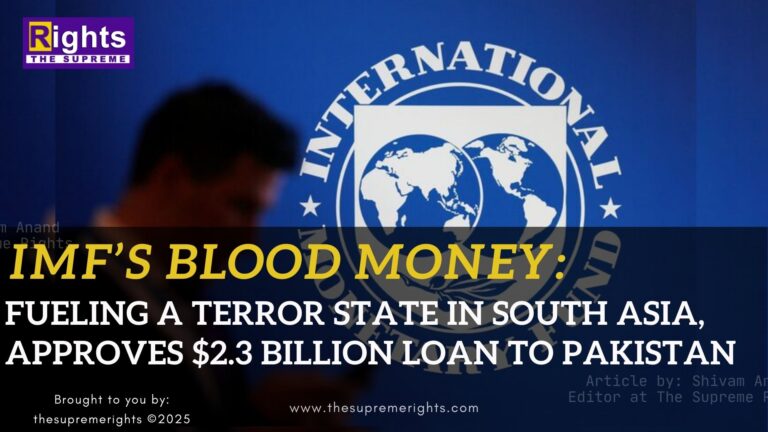The International Monetary Fund (IMF) has recently approved a substantial financial package for Pakistan, comprising a $1 billion tranche under the Extended Fund Facility (EFF) and an additional $1.3 billion under the Resilience and Sustainability Facility (RSF). This decision has sparked significant controversy, particularly from India, which abstained from the vote and expressed strong dissent, citing concerns over Pakistan’s alleged misuse of international funds to support state-sponsored terrorism.
India’s Stance: A Strong Dissent
India’s Ministry of Finance highlighted Pakistan’s poor track record with previous IMF programs, emphasizing the risk that these funds could be diverted to support cross-border terrorism. India pointed out that Pakistan has been a prolonged borrower from the IMF, with a history of failing to adhere to program conditions. The concern is that fungible inflows from international financial institutions like the IMF could be misused for military and state-sponsored terrorist purposes.
Global Concerns Over Fund Misuse
The apprehension that IMF funds could be misappropriated for nefarious activities is not limited to India. Several member countries have echoed these concerns, questioning the efficacy of IMF programs in Pakistan and the potential for funds to be used in ways that undermine regional stability. The recurring financial support to Pakistan, despite its track record, raises questions about the IMF’s program designs and their implementation by Pakistan.
Pakistan’s Military Influence and Economic Mismanagement
India also highlighted the entrenched role of Pakistan’s military in its economic affairs, which poses significant risks of policy slippages and reversal of reforms. The military’s interference in economic decision-making undermines the credibility of Pakistan’s commitments to international financial institutions. Even with a civilian government in place, the army continues to play an outsized role in domestic politics and extends its influence deep into the economy.
The Broader Implications
The IMF’s decision to approve this financial package for Pakistan has broader implications for international efforts to combat terrorism. By providing funds to a country accused of sponsoring cross-border terrorism, the IMF risks undermining its own credibility and the global fight against terrorism. This move could set a dangerous precedent, signaling that financial aid can be extended without stringent accountability measures, even to nations with questionable commitments to peace and stability.
Public Outcry and the “International Mujahideen Fund” Moniker
The IMF’s decision has been met with widespread condemnation from netizens, who have sarcastically dubbed the institution the “International Mujahideen Fund.” This moniker reflects the public’s frustration and perception that the IMF is inadvertently supporting terrorism by providing financial assistance to Pakistan. Such sentiments underscore the need for international financial institutions to exercise greater caution and due diligence when extending aid to countries with controversial records.

